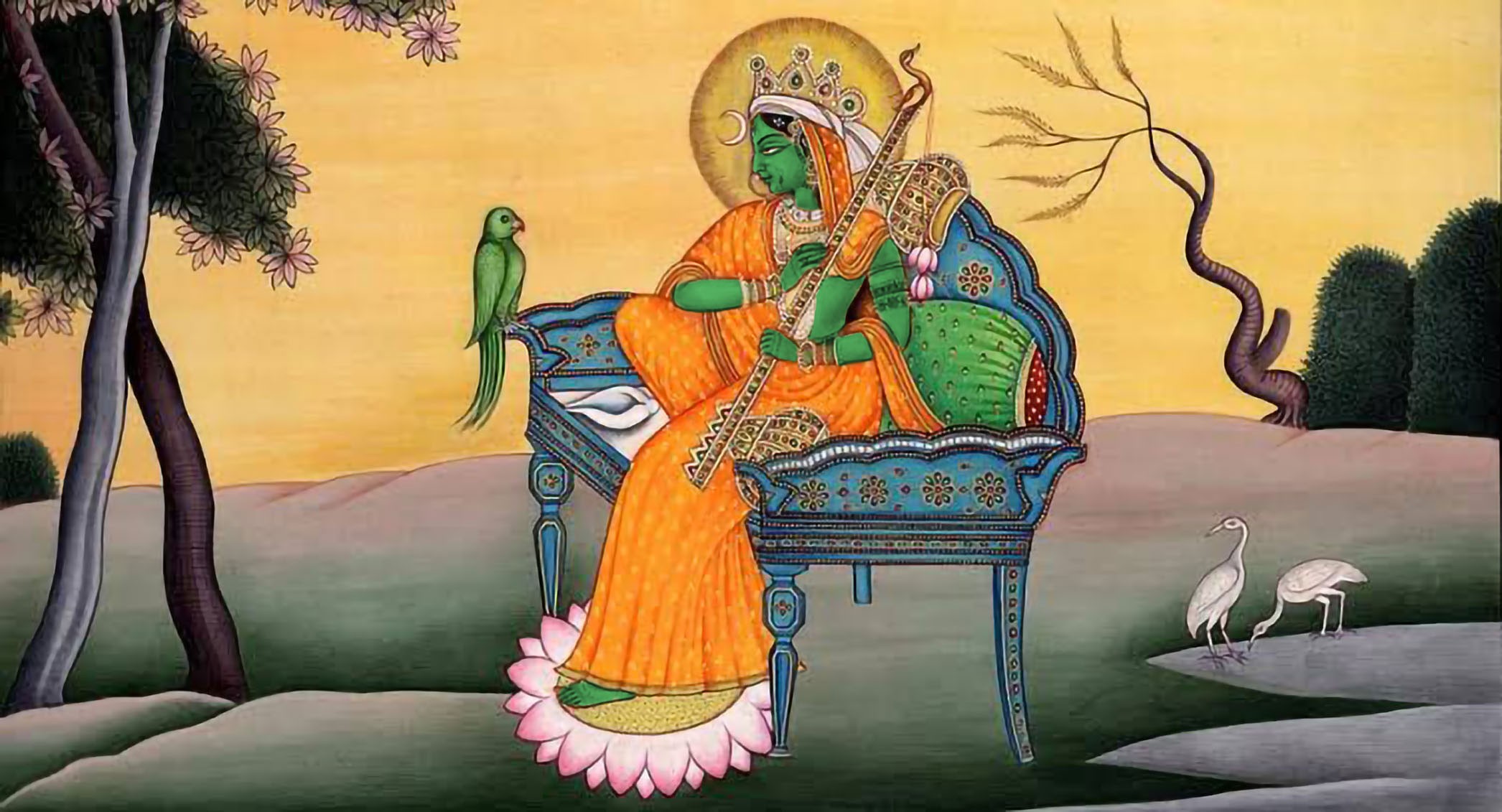- Edited

Agastya enquired:
89. Who is this sage called by the name Mātaṅga? How is it that his daughters perpetually serve Mantraṇīnāthā though they are lazy and slow due to intoxication by means of liquor?
Hayagrīva said:
90. There was a great ascetic, a mass of austerities (as it were) named Mātaṅga. He was richly endowed with great prowess. He was keenly interested even in creating a world.
91-93. By means of his intellect invigorated by the power of penance, he could press his power of command into service everywhere. His son Mātaṅga of courageous mind propitiated Mudriṇī (the deity having the signet ring) Mantrīnāyikā, by means of severe austerities. On being served for a long time by the son of sage Mataṅga, Mantriṇī went over to him and commanded him “Choose your boon”. Mātaṅga the most excellent one among the sages, the storehouse of penance said to Śyāmalāmbikā who manifested herself before him.
Mātaṅga the great sage prayed:
94. O goddess, merely by remembering you all the Siddhis beginning with Aṇimā (minuteness) and all other glorious assets and powers have been realized by me.
95. O mother, in all the three worlds there is nothing which I have yet to attain because I have realized all desires and I have been fortunate enough to remember your activities always in my memory.
96. Still, your presence here shall not be fruitless. I shall request for only this, O mother. Fulfil this boon.
97. Formerly, I had intimate association with Himavān, being friendly with him and cracking jokes with him. Playful and haughty he swaggered with words improper to be uttered.
98. “I am the father of Gaurī”, so boasted he. That statement was not liked by me, because he had more of good things in him.
99. When two friends have the same quality (and position) and if one of them gets something more for any reason, it is natural for the other to covet the same.
100. Though I have realized all my desires yet O Mantriṇīnāthā, I have performed penance to get the glory of being the father of Gaurī. Hence be my daughter.
101. Thereby and undoubtedly you will become well known through my name”.
On hearing these words uttered by Mātaṅga, the great sage, she said, “So be it” and vanished. The sage became pleased.
102. In the course of a dream, she gave the great sage Mātaṅga, with great joy, a bunch of Tamāla flowers as ornaments for the ears.
103. Due to the power of that dream, the wife of Mātaṅga named Siddhimatī conceived Laghuśyāmā in her womb.
104. Since she was born of him, she is glorified as Mātaṅgī. She was called Laghuśyāmā, because Śyāmā was her root cause.
105. Crores and crores of beautiful daughters of Mātaṅga along with the groups of Laghuśyāmā, Mahāśyāmā and Mātaṅgī attained the status of subsidiary Śaktis and they serve Priyakapriyā (Mantriṇī fond of Kadamba i.e. Nauclea cadamba).
106. Thus the origin of daughters of Mātaṅga has been mentioned…
Source: Lalitopakhyana (Ch. 31) - Manifestation of Seven Chambers and the daughters of Mātaṅga

